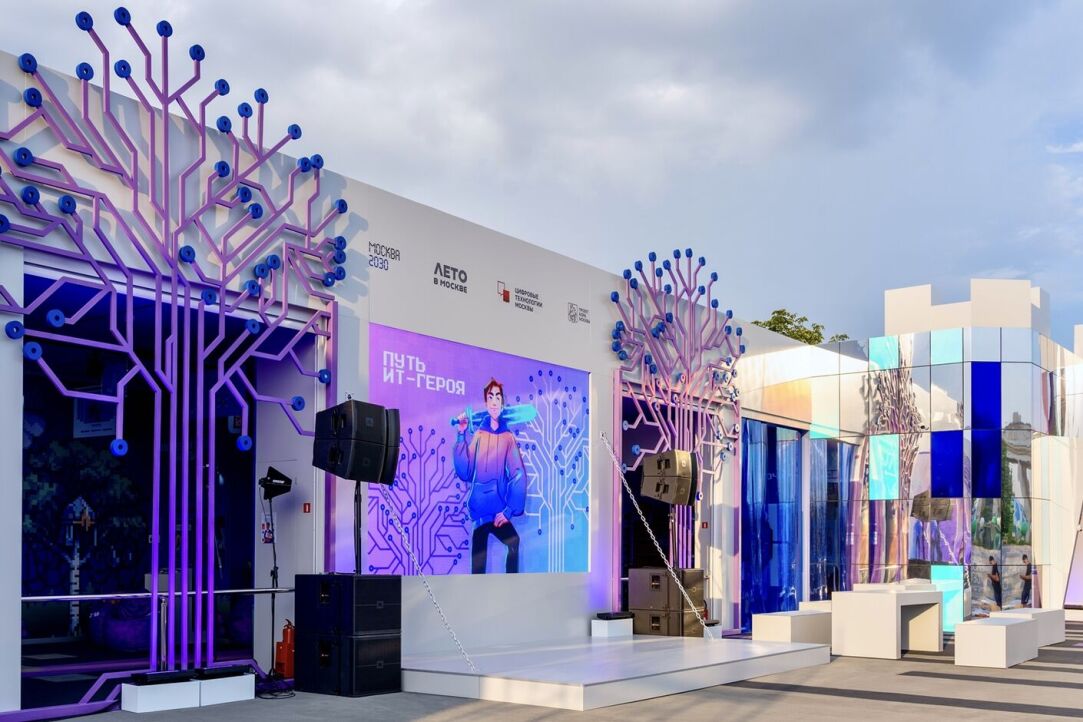
Updated Facts and Figures and Dashboards Now Available on HSE Website
The HSE Office of Analytics and Data Management, together with the Visual Communications Unit, has developed a new Facts and Figures about HSE University page on the HSE website. In addition, all university staff now have access to a dashboard with the updated indicators of the Priority 2030 programme.

HSE to Entrust Routine CPD Programme Development to AI
HSE University, together with the EdTech company CDO Global, is launching AI-based constructors to streamline the design of continuing professional development (CPD) courses. The new service will automate the preparation of teaching materials and assessment tools, significantly reducing the time and resources required of lecturers and instructional designers.

‘Territory of the Future. Moscow 2030’ Forum-Festival to Feature Innovative Projects from HSE Graduates
Until September 14, 2025, the Russian capital is hosting a large-scale forum-festival called ‘Territory of the Future: Moscow 2030’ —a space for technology, science, and innovation. This event showcases cutting-edge developments in medicine, astronautics, and the digital economy. HSE Art and Design School is participating in the festival with two graduate projects in Product and Industrial Design.

HSE Shares Its Experience of Urban Strategies at International Summer School in China
In the context of intensifying global geopolitical and technological competition, leading Chinese educational institutions—Zhejiang International Studies University and Peking University—organised an International Summer School. Their joint programme focused on studying global, regional, and urban development strategies. The HSE Faculty of Urban and Regional Development took part in this event.

‘The Goal of Modern Geography Is To Digitise Expert Knowledge and Integrate It with Big Data’
The importance of geographical science is increasing, as is the demand for education in this field. Since 2020, application numbers for Bachelor’s programmes at HSE University’s Faculty of Geography and Geoinformation Technology have climbed by 30%, while interest in Master’s programmes has also expanded, with applications up 10–15%. Nikolay Kurichev, Dean of the Faculty, spoke about this at a press conference hosted by MIA Rossiya Segodnya.

Scientists Develop Effective Microlasers as Small as a Speck of Dust
Researchers at HSE University–St Petersburg have discovered a way to create effective microlasers with diameters as small as 5 to 8 micrometres. They operate at room temperature, require no cooling, and can be integrated into microchips. The scientists relied on the whispering gallery effect to trap light and used buffer layers to reduce energy leakage and stress. This approach holds promise for integrating lasers into microchips, sensors, and quantum technologies. The study has been published in Technical Physics Letters.

‘Our Result Was Recognised Not Only Within the Project Defence but Also on International Scale’
This year, the European AI Conference (ECAI 2025) accepted an article titled ‘Multi-Agent Path Finding for Large Agents is Intractable’ by Artem Agafonov, a second-year student of the Applied Mathematics and Information Science Bachelor’s programme at HSE University’s Faculty of Computer Science. The work was co-authored by Konstantin Yakovlev, Head of the Joint Department with Intelligent Technologies of System Analysis and Management at the Federal Research Centre ‘Informatics and Management’ of the RAS and Associate Professor at the Faculty of Applied Sciences. In the interview, Artem Agafonov explained how he came up with the idea for the article and how he was able to present it at an A-level conference.

HSE Scientists Test New Method to Investigate Mechanisms of New Word Acquisition
Researchers at the HSE Centre for Language and Brain were among the first to use transcranial alternating current stimulation to investigate whether it can influence the acquisition of new words. Although the authors of the experiment have not yet found a link between brain stimulation and word acquisition, they believe that adjusting the stimulation parameters may yield different results in the future. The study has been published in Language, Cognition and Neuroscience.

Twenty vs Ten: HSE Researcher Examines Origins of Numeral System in Lezgic Languages
It is commonly believed that the Lezgic languages spoken in Dagestan and Azerbaijan originally used a vigesimal numeral system, with the decimal system emerging later. However, a recent analysis of numerals in various dialects, conducted by linguist Maksim Melenchenko from HSE University, suggests that the opposite may be true: the decimal system was used originally, with the vigesimal system developing later. The study has been published in Folia Linguistica.

HSE University–St Petersburg and Universiti Teknologi Malaysia Release First Book of Mirror Laboratory
Malaysia hosted the AHIBS 'Weaving Horizons for Sustainable Impact' international conference, which featured the presentation of the first Russian–Malaysian book of research articles.

